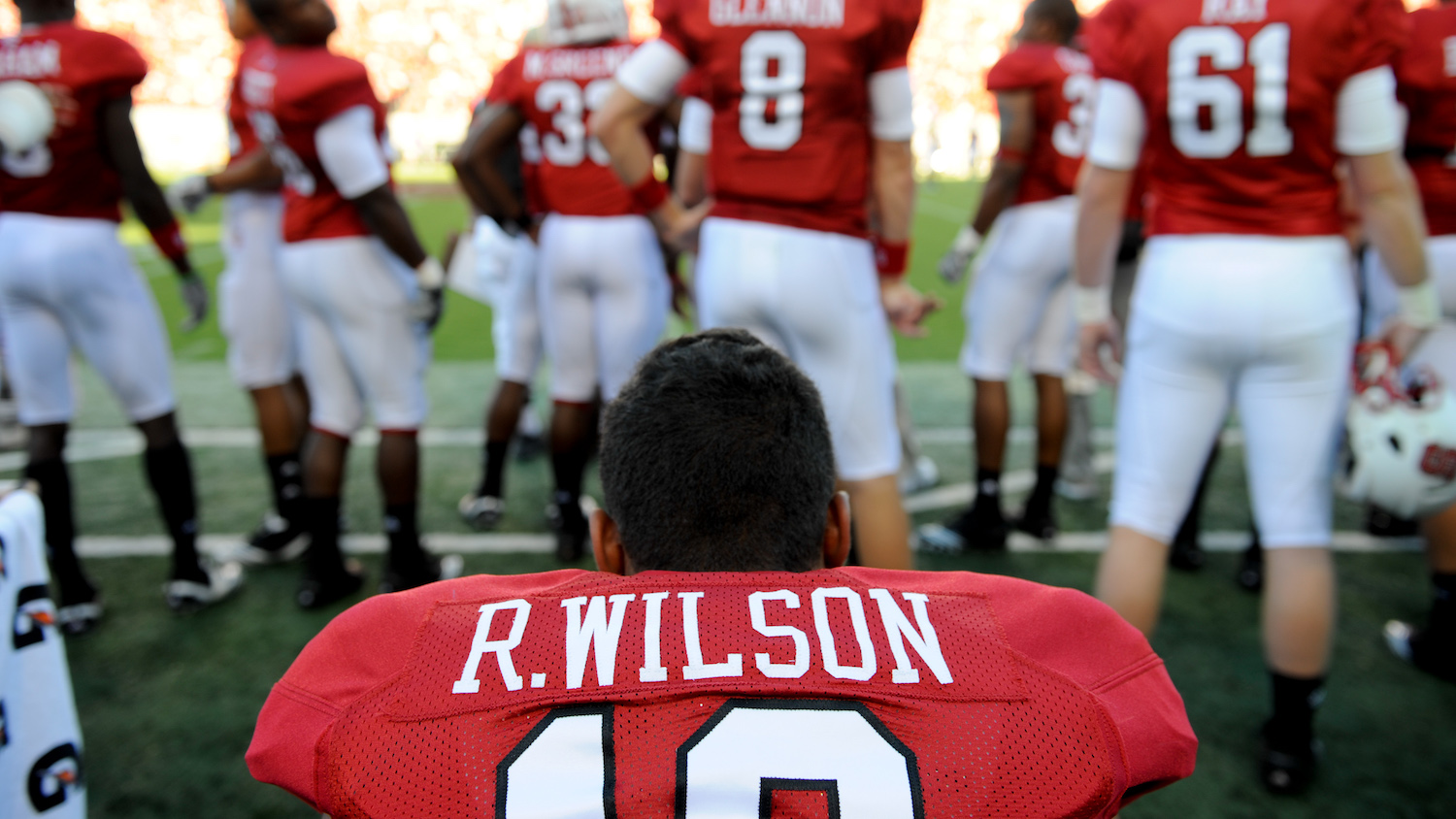The Quarterback Gift Tax
Each year, NFL quarterbacks lavish their offensive linemen with expensive gifts—and (possibly) pay a bigger tax bill.

It’s playoff season in the National Football League (NFL), and If you follow pro football, you know that the end of the regular season is when quarterbacks reward their offensive linemen with generous gifts for their hard work over 17 grueling games.
Former NC State quarterback and current Pittsburgh Steeler Russell Wilson was extra generous with his protectors this year. He gifted each of his lineman a $10,000 Airbnb gift card that can be used anywhere around the world, a Louis Vuitton duffle bag, custom Steelers shoes from his own Good Man Brand line, and a bottle of his wife Ciara’s TenToOne rum.
But such luxurious gifts can leave a big tax bill for the giver..
The U.S. tax code allows individual taxpayers to exclude gifts up to a certain value each year—$18,000 in 2024 and $19,000 in 2025. That means Russell Wilson can give up to $18,000 (in cash or goods) to any number of people in 2024 without triggering gift tax reporting requirements. For married couples, this amount doubles to $36,000 per recipient. So if Wilson’s gifts are actually from him and Ciara jointly, the total excludable value rises to $36,000.
Based on prices listed on the product websites (and the self-evident value of the Airbnb gift card), Wilson’s 2024 gifts probably came in below the reportable threshold:
- Airbnb card: $10,000
- Good Man Brand shoes: $258
- TenToOne rum: $45
- Louis Vuitton duffle bag: $2,780
- Total: $13,083
Any 2024 gifts exceeding the $18,000/$36,000 limit must be reported to the Internal Revenue Service, and their value counts toward the giver’s lifetime gift and estate tax exclusion: $13.61 million. That’s how much a taxpayer can give away in a lifetime without actually paying any gift tax. But doing so has a cost: it would reduce the amount available to shield your descendants’ inheritance from the estate tax. For long-tenured quarterbacks like Tom Brady and Aaron Rodgers, two decades of annual gifts to linemen could significantly affect their estate tax payments down the road.
That’s the tax situation for generous quarterbacks. What about their grateful linemen? Former NC State All-American offensive lineman Joe Thuney, now an All-Pro guard for the Kansas City Chiefs, has received many nice gifts over his nine seasons in the NFL. He’s played with two of the most generous quarterbacks: Brady and, for the last four seasons, Patrick Mahomes.
This year, Mahomes gifted each of his linemen a Rolex watch, a pair of Oakley sunglasses, Lucchese boots, a pair of Normatec recovery leg sleeves, Whoop bands and an item or two from Louis Vuitton, all packed in a Yeti cooler. During his career, Brady gifted his linemen Rolex watches and Audi Q7s.
Luckily for Thuney, recipients generally do not owe tax on gifts received and any tax is paid by the donor. It would be a different story, though, if those year-end extras came from the Chiefs or Patriots (rather than the QBs). Cash, gift cards and other easily convertible gifts from employers to employees are generally considered taxable income for the employee. However, small gifts of minimal value may be excludable from income.
Don Pagach is a professor of accounting and director of research for the Enterprise Risk Management Initiative. He studies financial analyst forecasts and market microstructure issues forecasting.


Roby Sawyers is the Forvis Mazars Professor of Accounting and head of the department of accounting. His research focuses on estate taxes and state and local sales taxes.
- Categories:


